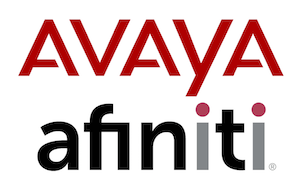 The watchwords at Opus Research in anticipation of upcoming privacy regulations is “Precision Without Surveillance”. We counsel customer care professionals and digital marketers to prepare for the era of “explicit consent” and the “opt-in” economy. Companies are going to have to justify their collection of personal information by providing something of value in return. It should start with effortless digital experiences, accurate answers and truly Intelligent Assistance.
The watchwords at Opus Research in anticipation of upcoming privacy regulations is “Precision Without Surveillance”. We counsel customer care professionals and digital marketers to prepare for the era of “explicit consent” and the “opt-in” economy. Companies are going to have to justify their collection of personal information by providing something of value in return. It should start with effortless digital experiences, accurate answers and truly Intelligent Assistance.
A partnership between communications giant Avaya and the self-described “AI-Pairing” specialist Afiniti is custom made to attack the challenges of “Precision Without Surveillance” by using pattern matching to fulfill on the promise of intelligent routing. In its nine-year existence, Afiniti has amassed over 90 patents to “examine data and commercially available information tied to customer identity to determine patterns of successful behavioral interactions.” Thanks to judicious application of these data to match inbound contacts with the most suitable agent Afiniti now claims over 150 deployments in major enterprises, involving than 600,000 agents and 700 million customers.
Through Avaya’s Technology Alliance program, Afiniti’s technology has already been put into practice at Avaya clients T-Mobile and Caesar’s World. The 3rd quarter (2018) will mark general availability of a “native” integration of Afiniti Enterprise Behavioral Pairing technology into the Avaya Aura® Contact Center Elite, Avaya Proactive Outreach Manager and Avaya Oceana customer interaction management platforms. This offering will help Avaya deliver on the long-standing promise “intelligent routing.” For a couple decades now existing approaches simply amounted to delivery of incoming calls to the “best agent,” which was often just the “next available agent”. At Caesar’s World and T-Mobile, Afiniti has shown that artificial intelligence can be applied in real time to match an incoming contact with the most appropriate agent or resource.
While Avaya claims that it is a “first-of-its-kind” offering, it is really an example of Intelligent Assistance resources being applied where they have had proven success. This type of triage (identifying the priority of a call) and arbitration (making decisions about how best to handle it) is especially well suited for omnichannel contact centers. Avaya’s chief rival, Genesys, already offers “predictive matching” as an important part of its Predictive Routing offering. It is part of the framework called KATE which enables Genesys to offer “blended AI,” which amounts to the notion of applying machine learning and predictive analytics to the tasks of anticipating the purpose of a call, the status of a caller and the best available resource to resolve a problem.
Categories: Conversational Intelligence, Intelligent Assistants

 2025 Conversational AI Intelliview: Decision-Makers Guide to Self-Service & Enterprise Intelligent Assistants
2025 Conversational AI Intelliview: Decision-Makers Guide to Self-Service & Enterprise Intelligent Assistants  Talk to the Web: How NLWeb Opens Conversational Access to Site Content
Talk to the Web: How NLWeb Opens Conversational Access to Site Content  Voice AI Agents Redefine CX: Trends, ROI, and Strategies for 2025
Voice AI Agents Redefine CX: Trends, ROI, and Strategies for 2025  Why Voice AI Is Foundational for Enterprise Innovation (Webinar)
Why Voice AI Is Foundational for Enterprise Innovation (Webinar)